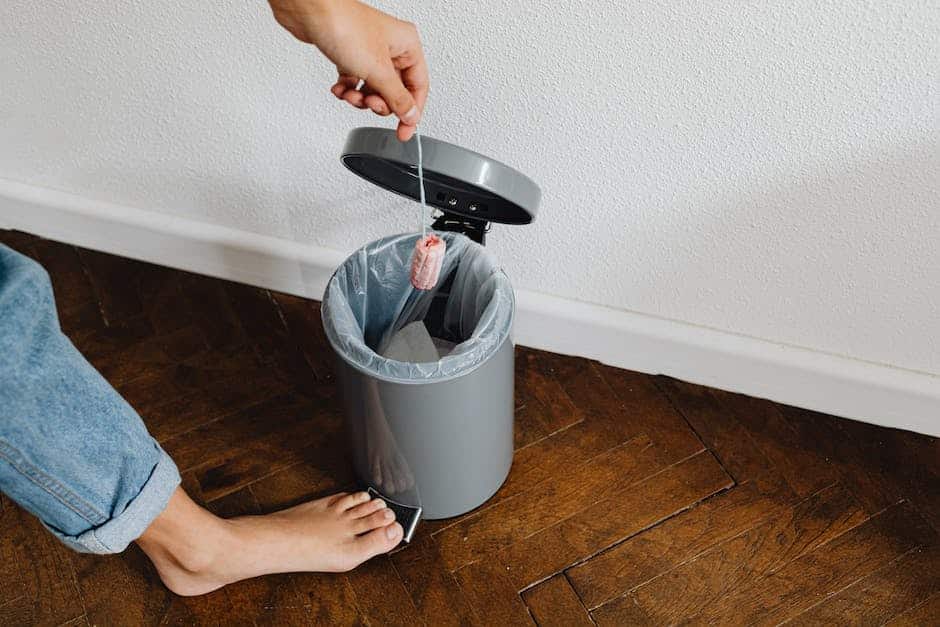Can Compostable Bags Go in a Green Bin?
Yes, compostable bags can go in a green bin. Compostable bags are designed to break down into organic matter, such as soil and water, within composting facilities. They are usually made from plant-based materials and decompose much faster compared to other types of garden waste bags. Composting is an effective way to reduce waste and create nutrient-rich soil for gardening and agriculture.
Benefits of Compostable Bags
Compostable bags offer several benefits when it comes to waste management:
- Environmental Friendliness: Compostable bags are made from renewable resources, such as cornstarch or vegetable oils, which reduces dependence on fossil fuels.
- Reduced Plastic Waste: By using compostable bags, you can help reduce the amount of plastic waste that ends up in landfills or oceans.
- Easier Waste Disposal: Compostable bags make it convenient to dispose of organic waste, including food scraps and yard trimmings, in green bins.
- Enhanced Composting Process: Compostable bags break down quickly during the composting process, providing a valuable source of organic matter for creating nutrient-rich compost.
Guidelines for Using Compostable Bags
While compostable bags are accepted in green bins, there are a few guidelines to follow:
- Check Local Regulations: It is important to check with your local recycling center or waste management facility for specific guidelines on what can be put in compostable bags and how they should be disposed of.
- Avoid Non-Organic Materials: Compostable bags should not contain any non-organic materials, such as plastics or metals. These materials can contaminate the composting process and reduce the quality of the resulting compost.
- Avoid Paper Products: While compostable bags can hold any type of food waste, it is generally recommended to avoid putting paper products, such as napkins or paper plates, in compostable bags. These items can be composted separately or recycled.
- Use Properly Certified Bags: Look for compostable bags that are certified by recognized organizations, such as the Biodegradable Products Institute (BPI) or the European Bioplastics (EN 13432) certification. These certifications ensure that the bags meet specific standards for compostability.
Composting in California
In California, compostable bags are also accepted in green waste bins. The state has implemented various initiatives to promote composting and reduce organic waste sent to landfills. By using compostable bags and properly disposing of organic waste, Californians can contribute to the state’s efforts to achieve waste reduction and environmental sustainability.
Conclusion
Compostable bags are a convenient and eco-friendly option for managing organic waste. They can be put in green bins and will decompose into organic matter during the composting process. By using compostable bags, you can reduce plastic waste, contribute to the production of nutrient-rich compost, and support environmental sustainability.
Related Websites:
FAQs:
Q: What are the environmental benefits of composting?
Composting diverts organic waste from landfills, reducing greenhouse gas emissions. It also helps create nutrient-rich soil for gardening and reduces the need for chemical fertilizers.
Q: Can compostable bags go in a green bin?
Yes, compostable bags can typically go in a green bin. However, it’s important to check your local regulations and guidelines as they may vary.
Q: What materials are accepted in green bins for composting?
Green bins typically accept organic waste such as food scraps, yard trimmings, and paper products. It’s important to avoid plastic, metal, and non-compostable materials.
Q: Why should I use compostable bags?
Compostable bags are made from plant-based materials that break down into organic matter. Using them helps reduce plastic waste and supports a more sustainable waste management system.
Q: What are some alternatives to compostable bags?
Alternatives to compostable bags include using reusable containers, paper bags, or even newspaper to dispose of organic waste. Each option has its benefits and drawbacks, so it’s important to choose what works best for you.






